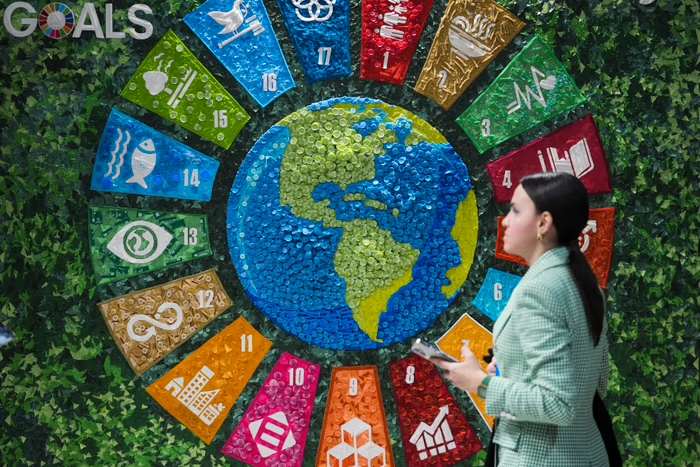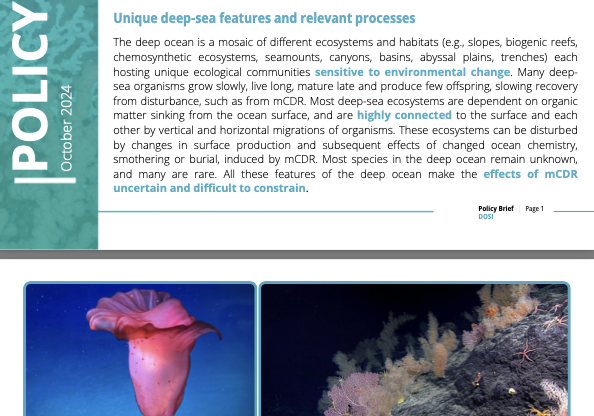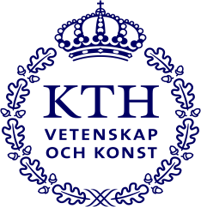Publications
-
Co-environing the ocean and climate: The Argo program

Image: NOAA Research Published Oct 14, 2025Susanna Lidström and Adam Wickberg examine the Argo Program, which coordinates an array of autonomous floats that roam the upper 2000 meters of the ice-free ocean, asking what it means for our view of...
Read the article -
Digital twins of the ocean: Wet environing media and marine futures

Image: https://ocean-twin.eu Published Sep 11, 2025Adam Wickberg and Susanna Lidström's new article critically analyses the European Union’s "Digital Twin of the Ocean", a digital replica of Earth's oceans that is being developed.
Read the article -
Review of "Overshoot: Why the World Surrendered to Climate Breakdown" (2025) Critical Inquiry
 Published May 07, 2025
Published May 07, 2025Adam Wickberg has published a review in Critical Inquiry of "Overshoot" by Andreas Malm and Wim Carton.
Read the article -
Transdisciplinary Histories and the Rise of the Environmental Humanities
 Published Feb 12, 2025
Published Feb 12, 2025Susanna Lidström has co-authored an article in the journal Global Environment which captures a conversation from the Fourth World Congress of Environmental History, Oulu, Finland, August 2024.
Read the article -
Planetary Environing: The return of boundaries as a category in global environmental governance
 Published Jan 30, 2025
Published Jan 30, 2025A new article in Anthropocene Review by Sverker Sörlin analyzes shifts in environmental governance using the Planetary Boundaries framework as an example.
Read the article -
In the financial sector the green hype is over. Can capitalism ever solve the climate crisis?
 Published Dec 02, 2024
Published Dec 02, 2024Opinion article in the Swedish newspaper Aftonbladet from Centre Co-Director Adam Wickberg.
Read the article -
What should the Anthropocene Mean? (2024) Nature
 Published Dec 02, 2024
Published Dec 02, 2024Members of the Centre of Excellence for Anthropocene History have contributed to a newly published comment in the journal Nature on why the idea of the Anthropocene is so useful.
Read the article -
Laying Waste to the Deep (2024) npj Ocean Sustainability
 Published Dec 02, 2024
Published Dec 02, 2024Centre researcher Susanna Lidström has co-authored a piece in npj Ocean Sustainability that warns of potential dangers of "marine carbon dioxide removal" (mCDR), an idea some have proposed as a climat...
Read the article -
Computation, Data and AI in Anthropocene History (2024) History and Technology
 Published Dec 02, 2024
Published Dec 02, 2024Center for Anthropocene History Co-director Adam Wickberg has co-authored an article in the journal History and Technology on how Data and AI play a role in Anthropocene History, not least in efforts ...
Read the article -
Considerations for Deep-Sea Environmental Impact Research on Marine Carbon Dioxide Removal
 Published Dec 02, 2024
Published Dec 02, 2024Centre researcher Susanna Lidström is co author on a newly released policy brief on deep ocean carbon removal.
Read the article -
The Jury is Still Out on the Question of the Anthropocene
 Published Dec 02, 2024
Published Dec 02, 2024Centre Co-director Adam Wickberg has published an article in the Swedish newspaper Dagens Nyheter.
Read the article

